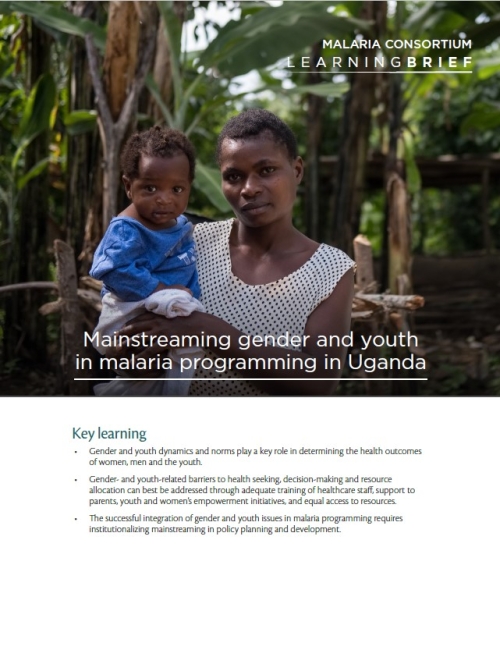Publications

Publication Date:
30/10/2020
Type:
Learning brief

Mainstreaming gender and youth in malaria programming in Uganda
Publication Date:
30/10/2020
Type:
Learning brief

Publication Date:
30/10/2020
Type:
Learning brief
Publication

Mainstreaming gender and youth in malaria programming in Uganda
Publication Date:30/10/2020
Type:
Learning brief
Malaria Consortium's USAID MAPD project explored the gender- and youth-related norms that might be hindering effective malaria control in Uganda.
According to the World Health Organization, gender norms, roles and behaviours significantly influence how women, men and young people react to health challenges. These norms and behaviours influence how individuals are accessing health services and how health systems respond to their needs. A thorough understanding of youth- and gender-related dynamics of health-seeking, decision-making and resource allocation — and their integration into programming — is critical for effective malaria control and prevention. This learning brief offers guidance and shares some lessons learnt on integrating measures that address gender- and youth-related barriers during malaria programmes in Uganda and sub-Saharan Africa.
Country: Uganda
Keywords: Capacity development | Community delivery | SBC | Malaria | iCCM | Malaria in pregnancy | MNCH | SDGs
« Back to Publications